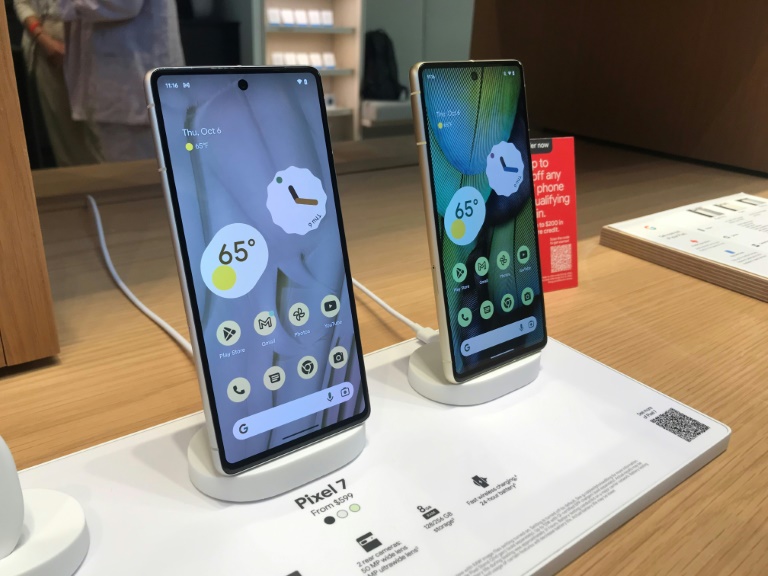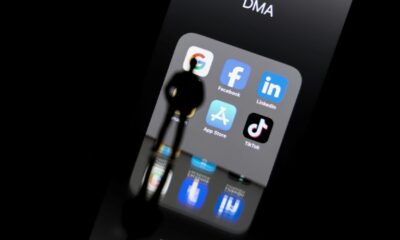Google is looking to up its smartphone game with the Pixel 7, the latest entrant in a competitive corner of personal electronics where it has traditionally been a bit player.
The device was unveiled this week in Brooklyn, where representatives from the Mountain View, California giant highlighted top-flight features that can silence background noise on the phone.
First introduced in 2016, the Pixel was a late-comer to the portable phone trend, arriving nearly a decade after Apple’s iPhone and seven years after Samsung’s Galaxy model, the two products that dominate today’s market.
In 2020, global deliveries of the Google phone were just 2.7 million, next to more than 200 million for both the Apple and Samsung options.
Those paltry sales figures are partly due to the Google phone’s limited availability, with the Pixel 5 sold in less than 10 countries as the tech giant has focused its smartphone investment on software rather than its own hardware.
While Google’s phones are comparable in terms of quality to the top sellers, the product “has often lacked backing from Google” in terms of marketing, said Runar Bjørhovde, a research analyst at market research firm Canalys.
Google has instead focused on boosting its Android operating system, which was launched in 2008 and included more than 80 percent of the smartphones sold in the first half of 2022, according to Canalys.
Maurice Klaehne of Counterpoint Research said that “Google certainly has the capability and resources to become a major smartphone player, but that is not Pixel’s strategy,” noting that growing Android remains Google’s main objective.
But “Selling more Pixel devices might mean taking away share from other Android players, and this would go against Pixel’s goal,” he said.
Bjørhovde noted that, with the latest version of the phone, Google has pivoted somewhat, releasing a product that is compatible with wearables, earbuds and other devices produced by the company.
– Wonders of AI –
The prior phone version, the Pixel 6, was the first to employ Tensor processing developed by Google to enable more sophisticated artificial intelligence and machine learning.
The Pixel 7 has a second-generation Tensor, the G2, which can make blurry photos more clear, excise distracting extras from photos and remove the background noise on telephone calls.
The upgraded system also can translate language in real-time, including idioms, and transmit more nuanced photos of different skin tones.
At a launch event, Google vice president Rick Osterloh said the new product “represents years of development across Google, and a long-term investment in the Pixel portfolio.”
The company has seen an uptick in sales, reaching 6.2 million Pixels in the 12 months ending June 30, 2022, up 129 percent from the prior 12-month stretch, according to figures from Canalys.
This includes a doubling in market share in the United States, where Pixel now only accounts for two percent of smartphone sales.
Priced at $599 in the United States, the Pixel 7 is being positioned as relatively affordable. The latest versions of the iPhone and Samsung Galaxy are both around $800.
Google has been bolstering its Pixel marketing, partnering with the NBA professional basketball league.
The company also plans to distribute Pixel 7 in 17 countries, compared to 13 markets for the prior version.
“Google has the potential to become a long-term player in the smartphone market,” said Bjørhovde. “However, it will be dependent upon global scale and breaking into new markets to achieve this and create a profitable business that can last.”

 Business4 months ago
Business4 months ago
 Business5 months ago
Business5 months ago
 Events3 months ago
Events3 months ago
 People4 months ago
People4 months ago
 Events6 months ago
Events6 months ago
















